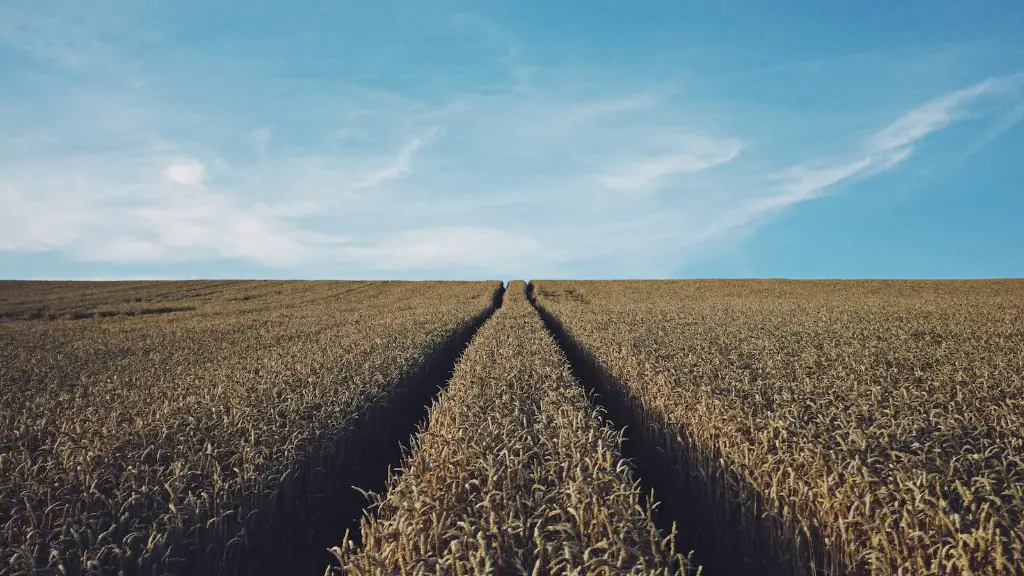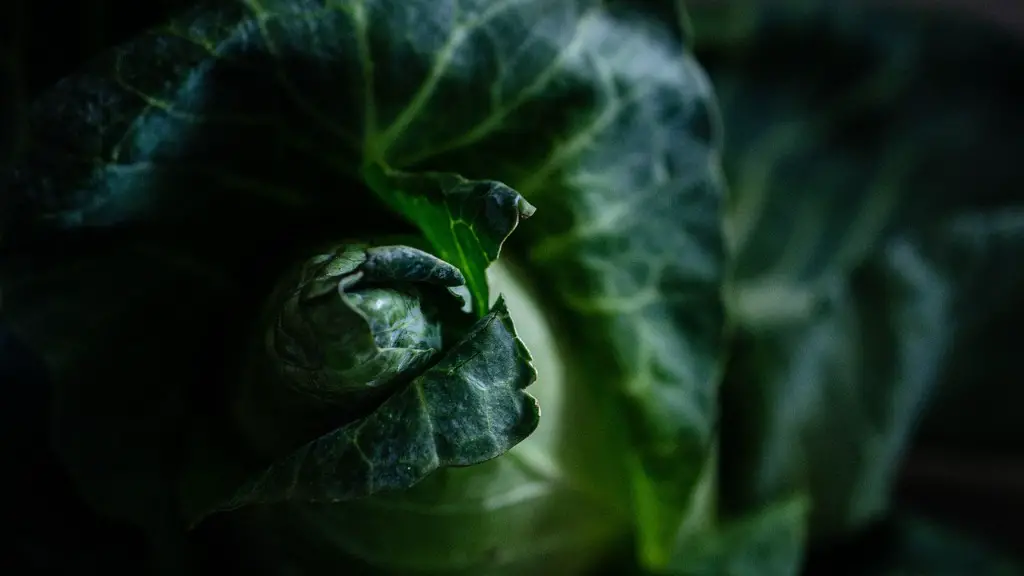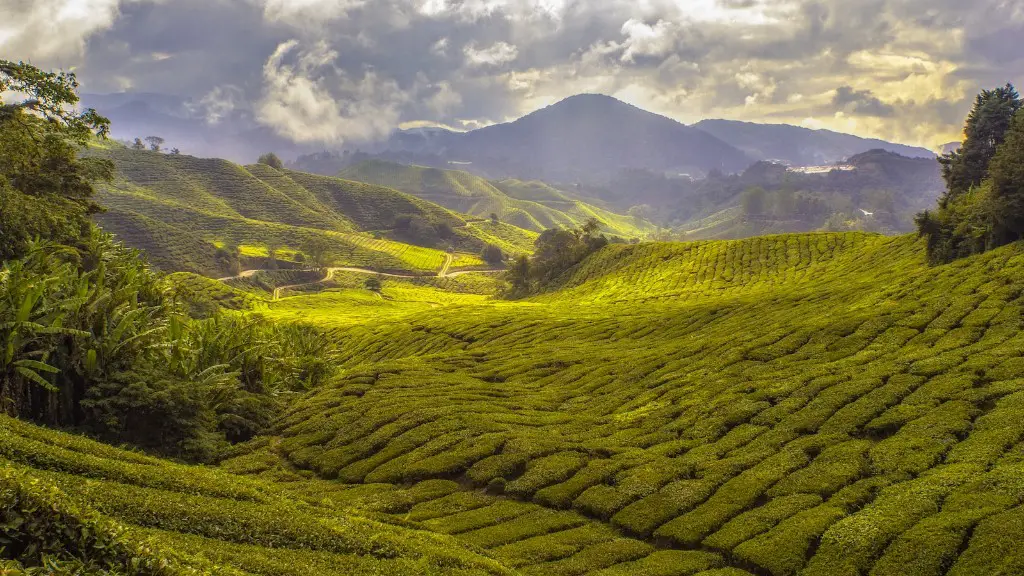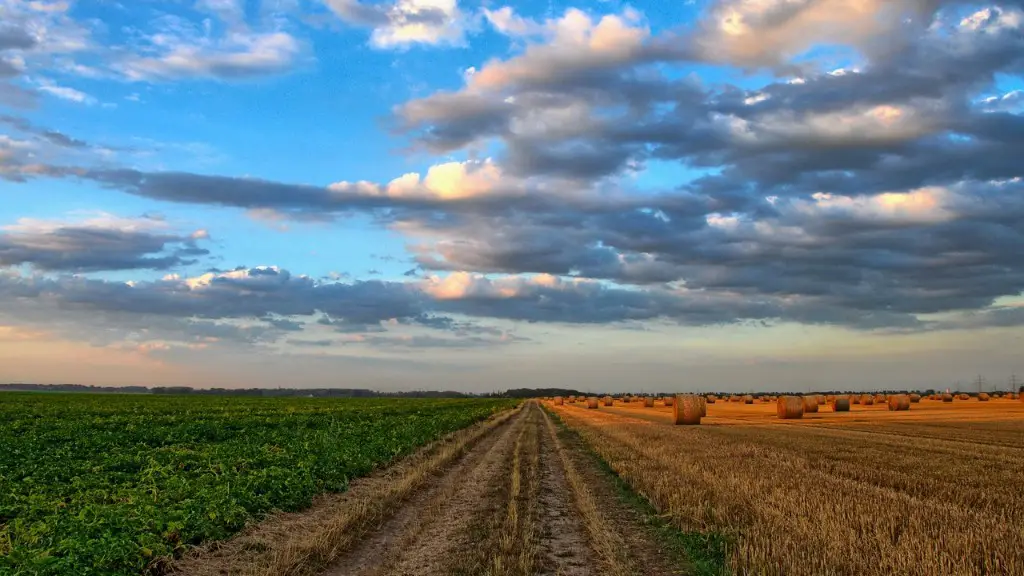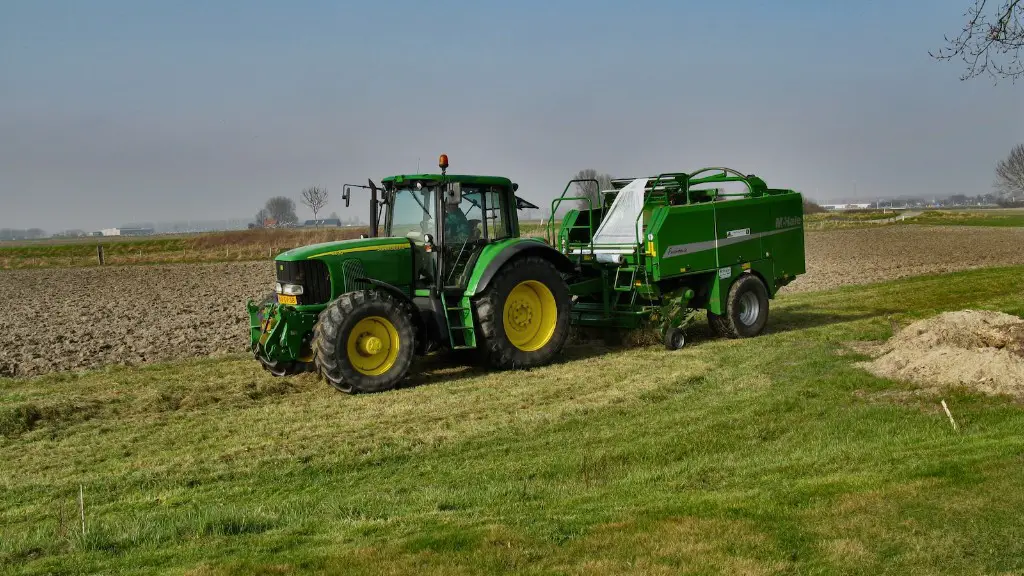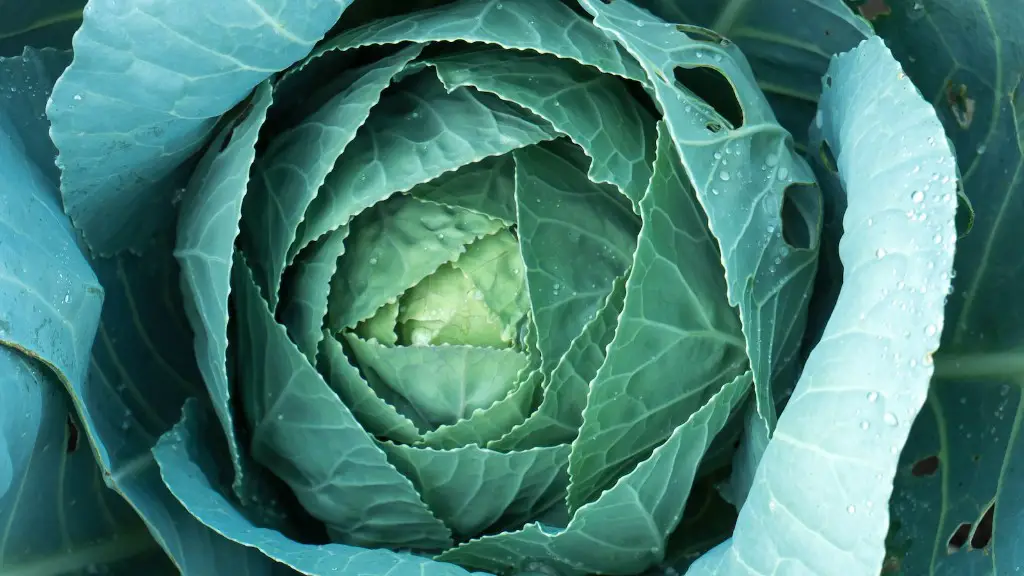Agriculture is the science, art, and practice of producing plants and animals for human use. Agriculture deals with the production of crops, livestock, and other products for people to use. It also includes the management of natural resources, such as land and water.
The term “general agriculture” can refer to a few different things. It can refer to the study of agriculture in general, including the history, science, and business of farming. It can also refer to a type of farming that is not specialized in any one crop or animal.
What is the general agriculture?
The General Agriculture program at UC Davis prepares students to obtain an education with courses from a diversity of ag related disciplines. This degree will require students to take courses in livestock production, range management, horticulture, ag economics, and science. With this degree, students will be able to pursue careers in a variety of fields related to agriculture.
The term “agricultural purposes” includes the production, harvest, exhibition, marketing, transportation, processing, or manufacture of agricultural products by a natural person who cultivates, plants, propagates, or nurtures those agricultural products, including but not limited to the acquisition of farmland.
What are the best courses in agriculture
The Agricultural Engineering program at the University of Minnesota is one of the top programs in the country. The program is designed to prepare students for careers in the agricultural and food industries. The program offers a broad range of courses in agricultural engineering, agronomy, aquaculture, and fisheries. students also have the opportunity to take courses in rural development and sustainable agriculture. The program is accredited by the Accreditation Board for Engineering and Technology (ABET).
The CASE curriculum is a great resource for Agricultural Science educators. It is delivered with a heavy science inquiry focus, which makes it a great tool for teaching science concepts in an agricultural context. The CASE curriculum is also very comprehensive, covering a wide range of topics in agricultural science.
What courses are in general agriculture?
The Programme It is comprised of a range of courses in agriculture and allows the students to specialize in one of three (3) areasLivestock ProductionTurf Management and LandscapingCrop Production.
The Agricultural Specialist Diploma Programme is a two-year programme that is designed to provide students with the skills and knowledge necessary to pursue a career in the agricultural industry. The programme is comprised of a range of courses in agriculture and allows the students to specialize in one of three areas: Livestock Production, Turf Management and Landscaping, or Crop Production.
Subsistence agriculture is still practiced in many parts of the world, particularly in less developed regions. This type of agriculture is typically characterized by small scale production, limited use of technology, and reliance on manual labor. In contrast, commercial agriculture is typically large scale, highly mechanized, and uses a variety of modern technologies. This type of agriculture is found in more developed regions, where it forms the basis of the agri-food industry.
What are 3 things agriculture provides?
1.It’s the main source of raw materials: Agriculture is the main source of raw materials for industries like textile, wood, paper, etc.
2.It’s important to international trade: Agriculture is one of the most important sectors in international trade.
3.It plays a big role in a nation’s revenue: Agriculture is a major source of revenue for many countries.
4.It provides employment: Agriculture is a major source of employment for many people around the world.
5.It’s crucial to a country’s development: Agriculture is essential for the development of a country.
6.It can help heal the environment: Agriculture can help heal the environment by using less harmful pesticides and by using organic methods.
7.It goes hand-in-hand with war: Agriculture is often used as a weapon in war.
8.It’s an important part of the economy: Agriculture is a significant part of the global economy.
Farming can be classified into several types, based on scale, land use, and production practices. The main types of farming are dairy, commercial, plantation, grain, mixed, subsistence, and intensive subsistence.
Dairy farming is the type of farming that is focused on the production of milk and other dairy products. Commercial farming is a type of farming that is conducted on a large scale and aims to produce crops and livestock for sale. Plantation farming is a type of commercial farming that is conducted on a large scale and focuses on the production of crops such as coffee, tea, and sugarcane.
Grain farming is a type of farming that is focused on the production of grains such as wheat, rice, and corn. Mixed farming is a type of farming that combines the production of crops and livestock. Subsistence farming is a type of farming that is focused on producing enough food to meet the needs of the farmers and their families. Intensive subsistence farming is a type of subsistence farming that is conducted on a small scale and uses high levels of inputs such as fertilizer and irrigation to increase yields.
What are the 4 types of agriculture
There exist four main branches of agriculture, namely; livestock production, crop production, agricultural economics, agricultural engineering. Each branch may include various sub-branches that focus on specific aspects of the field. For example, livestock production may encompass sub-branches such as animal husbandry, nutrition, and health. Agricultural economics may include sub-branches such as farm management, agribusiness, and marketing.
The module provides an introduction to the economics of agriculture and rural development. It covers the key concepts and methods used in the field, and applies them to a range of policy issues and case studies. The module will be of particular interest to those considering a career in agricultural economics or farming.
Is it hard to study agriculture?
No, BSc Agriculture is not a tough course. It is a very challenging and rewarding field of study. Agriculture is a vital sector of the economy and it plays a very important role in our society.
Engineering in agriculture is a broad field that encompasses many different areas of study. From soil and water conservation to animal husbandry and crop production, there are many different aspects of agriculture that an engineer can specialize in. The job opportunity mentioned in the question is best suited for someone with a keen interest in agriculture and a desire to apply their engineering knowledge to help improve agricultural practices.
What does CRP mean in agriculture
The Conservation Reserve Program (CRP) helps farmers protect environmentally sensitive land and plant species that improve environmental health and quality. In exchange for a yearly rental payment, farmers enrolled in the program agree to remove land from agricultural production. This helps reduce soil erosion, improve water quality, and provide habitat for wildlife.
Farm produce refers to crops, fruits, plants, cereal, other edible roots, tubers, honey, eggs, milk, meat, and other items grown or raised on a farm. Farm produce is an important part of the food supply and is used to provide food for people and animals.
What is agricultural curriculum?
Agricultural education is a broad field that covers many different topics. Classes in an agricultural education curriculum can range from horticulture and land management to turf grass management and agricultural science. Other classes might cover small animal care, machine and shop use, health and nutrition, and livestock management. Biology is also often taught as part of an agricultural education.
Crop production, animal production, agricultural engineering, agricultural extension and planning, farm business management, and environment management are all important aspects of agriculture. Each one of these aspects can be further divided into subcategories. For example, crop production can include soil science, horticulture, agronomy, plant breeding, and crop protection. Animal production can include animal husbandry, animal nutrition, and animal health. Agricultural engineering can include farm machinery, power, and irrigation. Agricultural extension and planning can include agricultural economics, farm management, and agroforestry. Farm business management can include farm accounting, farm finance, and farm marketing. Environment management can include soil and water conservation, solid and hazardous waste management, and pest management.
Is agriculture an easy course
No, the BSc in agriculture is not a difficult course to study. The practical nature of the course makes it easier for students to grasp the concepts and apply them in real-world scenarios.
A certificate in General Agriculture from this private college will take two years. You will learn the practical skills and attitude required for the job market. After this period, you will be able to find a job in the agricultural field.
Conclusion
general agriculture deals with the cultivation of crops and the raising of livestock. It also includes the production of raw materials, such as wool and leather, and the processing of these materials into finished goods, such as clothing and shoes. In addition to these activities, agriculture also encompasses the management of natural resources, such as land and water, and the protection of the environment.
General agriculture deals with the farming of crops and animals for human consumption. It also includes the management of natural resources, such as soil and water.
